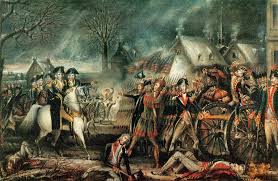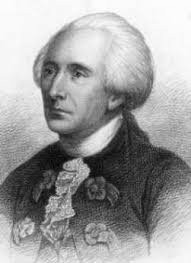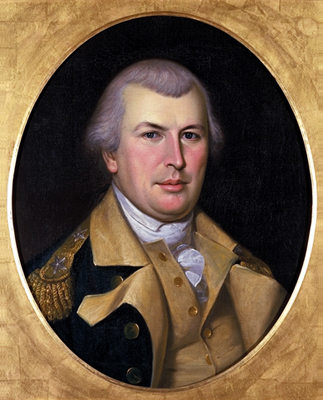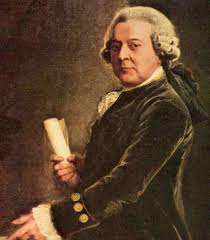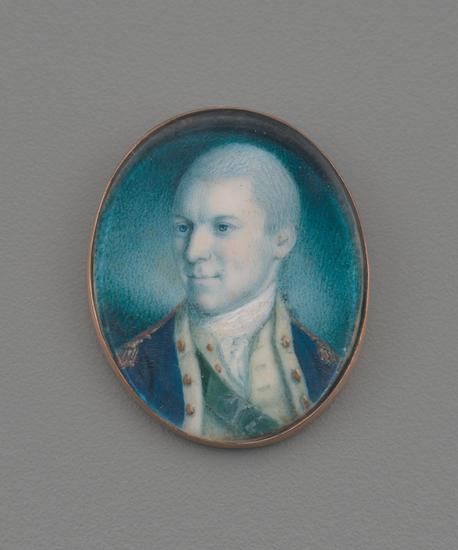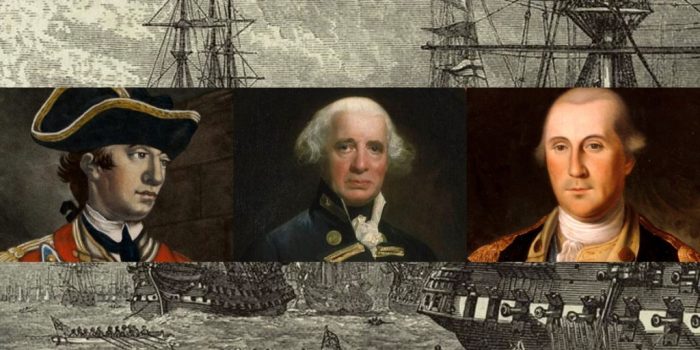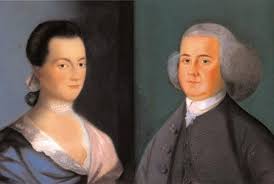
On the frontier of North Carolina, to discourage a reported Indian alliance with the British, troops from Virginia, North and South Carolina invade Cherokee territory and begin a campaign, which will ultimately destroy 32 towns and villages.
John Adams writes to Abigail, first asking her about her small pox vaccination, but then moving on to discuss a “knotty problem” that will, indeed, engage those who meet at the Constitutional Convention over ten years later: “How are you all this Morning? Sick, weak, faint, in Pain; or pretty well recovered? By this Time, you are well acquainted with the Small Pox. Pray how do you like it? We have no News. It is very hard that half a dozen or half a Score Armies cant supply Us, with News. We have a Famine, a perfect Dearth of this necessary Article. I am at this present Writing perplexed and plagued with two knotty Problems in Politicks. You love to pick a political Bone, so I will even throw it to you. If a Confederation should take Place, one great Question is how We shall vote. Whether each Colony shall count one? or whether each shall have a Weight in Proportion to its Numbers, or Wealth, or Exports and Imports, or a compound Ratio of all? Another is whether Congress shall have Authority to limit the Dimensions of each Colony, to prevent those which claim, by Charter, or Proclamation, or Commission to the South Sea, from growing too great and powerfull, so as to be dangerous to the rest. Shall I write you a Sheet upon each of these Questions. When you are well enough to read, and I can find Leisure enough to write, perhaps I may.”
Meanwhile, Adams receives a letter from Abigail: “I write you now, thanks be to Heaven, free from paine, in Good Spirits, but weak and feeble. All my Sufferings produced but one Eruption. I think I can have no reason to be doubtfull with regard to myself as the Symptoms run so high and my Arm opperated in the best manner. The small pox acts very odly this Season, there are Seven out of our Number that have not yet had it, 3 out of our 4 children have been twice innoculated, two of them Charles and Tommy have not had one Symptom. I have indulged them in rather freer living than before and hope they will not long remain doubtfull. Mrs. Cranch and Cotton Tufts have been in Town almost 3 weeks and have had the innoculation repeated 4 times and can not make it take. So has Mrs. Lincoln. Lucy Cranch and Billy are in the same State. Becky Peck who has lived in the same Manner with us, has it to such a degree as to be blind with one Eye, swell’d prodigiously, I believe she has ten Thousand. She is really an object to look at; tho she is not Dr. Bulfinches patient. Johnny has it exa[c]tly as one would wish, enough to be well satisfied and yet not be troublesome. We are ordered all the Air we can get, and when we cannot walk we must ride, and if we can neither walk nor ride, we must be led. We sleep with windows open all Night, and Lay upon the Carpet or Straw Beds, Mattrass or any thing hard, abstain from Spirit, Salt and fats, fruit we Eat, all we can get, and those who like vegetables unseasond may Eat them, but that is not I.—This doubtfull Buisness is very dissagreable as it will detain us much longer, but there are several instances now of persons who thought they had had it, and were recoverd, and lived away freely, and now are plentifully dealt by. Mr. Joseph Edwards wife for one, and queer work she makes of it you may be sure. The Doctors say they cannot account for it, unless the free presperation throws it of[f]. Every physician has a number of patients in this doubtfull State. Where it does take and the patient lives any thing free, they have a Doze of it. Cool weather is much fitter for the small pox. I have not got rid of any terrors of the small pox but that of not being liable to it again, which you will say is a very great one; but what I mean is that I should dread it more now than before I saw it, were I liable to it. If we consider the great numbers who have it now, computed at seven thousand, 3 thousand of which are from the Country, tis very favorable, tho not so certain as it was last winter with many patients. Mr. Shaw who was innoculated at the same time when I and 3 of my children were out of the same Box, and has lived lower by his account than we have, has a full portion of it for all of us. There is no accounting for it. We did not take so much phisick as many others neither. If this last does not take I shall certainly try them with some wine. Dr. Sawyer of Newbury Port lost a child 9 years old last week with the Distemper, and Coll. Robinson of Dorchester lies extreem bad with a mortification in his kidneys. Some such instances we must expect among such a variety of persons and constitutions. I rejoice Exceedingly at the Success which General Lee has met with. I believe the Men will come along in a short time. They are raising, but the Massachusets has been draind for Sea Service as well as land. The Men were procured in this Town last week; we have taken a vessel from Halifax bound to New York, which we should call a prize but that it containd about 14 Tories among whom is that infamous Wretch of a Ben Davis the Ginger Bread Robber. How many little ones can say I was an Hungry and you gave me no Bread, but inhumanely took what little I had from me.2 I wish the Sea or any other Element had them rather than we should be tormented with them. Friends and connextions are very bad things in such times as these. Interest will be made, and impartial Justice obstructed, we catch flies and let the wasps go.—Hark a General Huzza of the populace, these wretches are just committed to jail. The Continential Troops are near all gone from this Town, all I believe who are in a Marching State. The small pox has been General amongst them and exceeding favourable. I have requested of Judge Cushing to write you an account of his circut and he has promised to do it. Both he and his Lady are under innoculation. When I came into Town I was in great hopes that if we did well we should be able to return in about 3 weeks, and we should have been able to have effected it, if it had opperated as formerly. Now I fear it will be 5 weeks before we shall all get through but I must not complain. When I cast my eye upon Becky whose Symptoms were not half so high as mine or some of the rest of us, and see what an object she is I am silenced, and adore the Goodness of God towards us. Her Dr. says she is not dangerous. Col. Warren has sufferd as much pain as I did, but has more to shew for it, he is very cleverly spatterd. Mrs. Warren is now strugling with it, to one of her constitution it opperates in faintings and langour. It did so upon Betsy Cranch, yet when it found it[s] way through, it opperated kindly.—I believe you will be tired of hearing of small pox, but you bid me write every post and suppose you are anxious to hear how we have it. The next post I hope to tell you that they all have it, who now remain uncertain.”
Join us at Bow Tie Tours for Philadelphia’s Best Historical Walking Tours. To learn more about George Washington, take our take our Valley Forge Tour. Or, enjoy our four-hour “Independence Tour Extraordinaire,” which includes tickets to Independence Hall. If your interest lies in the Civil War, you will not want to miss out on our extraordinary Gettysburg Tour. Finally, if you are a huge history fan, please check out our exciting American Revolution Vacation Packages, which include week-long excursions to learn about George Washington or Thomas Jefferson.
